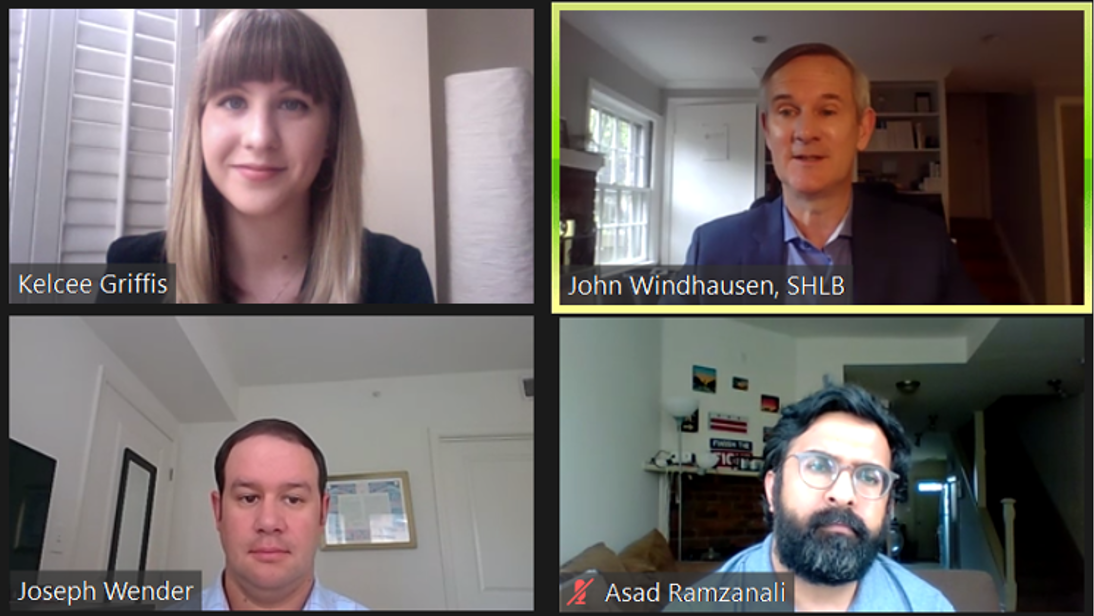Partisan Disagreement Delays Broadband Funding That Might Come Through HEROES Act
May 29, 2020 — A slew of bills addressing broadband concerns during the coronavirus pandemic have been proposed, but partisan disagreement over the details of spending packages has delayed the funding of broadband infrastructure, said panelists of a webinar hosted by the Schools, Health, & Libraries
Jericho Casper

May 29, 2020 — A slew of bills addressing broadband concerns during the coronavirus pandemic have been proposed, but partisan disagreement over the details of spending packages has delayed the funding of broadband infrastructure, said panelists of a webinar hosted by the Schools, Health, & Libraries Broadband Coalition on Friday.
Panelists discussed the recently proposed bills and the likelihood of their enactment. Although there is recognition of the need to upgrade American infrastructure from both political parties, there has not yet been a major infrastructure bill passed by President Donald Trump.
Trump recently indicated his support for a Phase 4 stimulus package worth $2 trillion in infrastructure spending. Congress is considering bills to add $2 billion to the Rural Health Care Program, $4 billion to the E-rate program, $1 billion for Lifeline, $80 billion for broadband infrastructure, and $1.2 billion for digital literacy.
“Infrastructure” is a broad term and is defined differently along partisan lines. While members of the SHLB panel argued that infrastructure includes broadband, leaders of the Republican Party have previously contested this.
“It is proven that broadband increases economic development,” said Joseph Wender, senior policy adviser to Sen. Ed Markey, D-Mass. “If we’re going to continue to lead as a society, we need connectivity.”
The HEROES Act, including a number of initiatives to keep families and businesses online through the duration of the pandemic, passed in the House on May 15 by a vote of 208–199. If it passes in the Senate, the HEROES Act would provide $3 trillion in additional funding, of which approximately $5.5 billion would be allocated to broadband infrastructure.
The bill would also provide $1.5 billion through the Federal Communication Commission’s E-Rate Program, which aims to facilitate distance learning by providing additional funding to schools and libraries in their effort to provide Wi-Fi hot spots and devices to students affected by the digital divide.
Asad Ramzanali, legislative director for the office of Rep. Anna Eshoo, D-Calif., said he was hopeful about legislation being passed sooner rather than later.
Moderator Kelcee Griffis, a senior telecom reporter at Law360, suggested that while some provisions of the HEROES Act clearly relate to the coronavirus response, others are things that Democrats have been wanting for a while, such as the Prison Phone Justice provision.
Ramzanali argued that the bill “did not include advantages for Democrats” and that each provision has a “clear link to coronavirus.”
The bill faces a challenge seeking its final approval in the Republican-led Senate. Senate Majority Leader Mitch McConnell, R -Ky., has argued against any connection between broadband and the coronavirus pandemic and has historically blocked legislation expanding rural broadband.
Wender claimed that there is private bipartisan support for measures aiming to close the digital divide, but Republican House members are proceeding with political caution to avoid challenging their superiors.
“The chances of a big infrastructure bill being passed before the end of Donald Trump’s term are low,” Wender concluded, noting that in the meantime, 7 million homes remain without broadband.









Member discussion